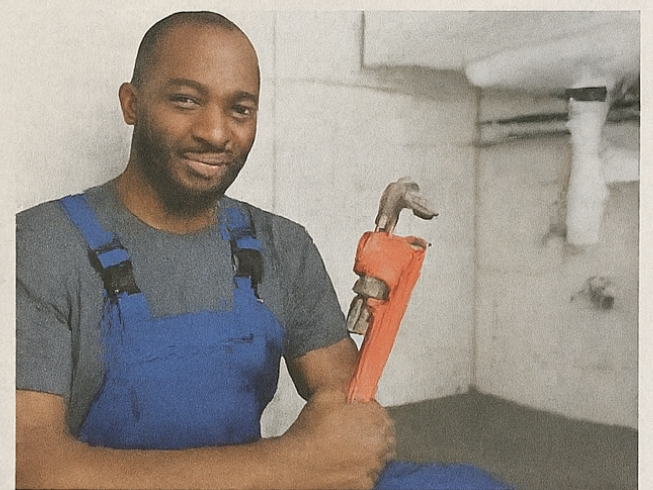In Ghana today, we have unintentionally created a dangerous illusion that the value of a person is measured by the number of degrees they hold rather than the practical contribution they make to society. This illusion has left us with a growing number of graduates who are jobless, directionless, and sometimes helpless, while the people who fix our real-world problems are disrespected, underpaid, and overlooked.
Consider the philosophy graduate, articulate and perhaps even brilliant, capable of deep reflection and arguments about morality, justice, and logic. But in a country facing blocked drains, broken infrastructure, leaking pipes, and daily sanitation crises, how far does abstract thought go without action?
Now consider the plumber, a man or woman who didn’t go to the university but learnt their trade through apprenticeship, plungers, pipes, and practical work. Every day, they solve real problems, keep homes functional, prevent disease outbreaks, and often work under the most unpleasant conditions, all with little recognition or respect.
Let’s be brutally honest. In today’s Ghana, we need more competent plumbers than unemployed philosophers.
This is not a knock on higher education. It is a call for realism. Degrees without corresponding skills are not only useless; they are dangerous. They create entitlement without productivity. A country cannot be built on theory alone. We cannot philosophize our way out of filth, floods, or food insecurity.
What Ghana needs most are doers; skilled artisans, technicians, engineers, masons, farmers who understand soil, tailors who understand cuts, and caterers who can feed thousands hygienically. We need people who fix lights, install solar panels, and build durable roads. We need trained welders, tilers, carpenters, and mechanics. These are the human engines of any serious economy. Without them, no amount of intellectual debate will fix a single broken pipe or keep a single light on.
Yet somehow, these essential workers are the least respected. A young man in overalls with a wrench is seen as a failure, while a graduate with no job and no skill is seen as a prospect. This is not only ironic. It is national self-sabotage.
In Germany, being a master plumber earns you respect. In Switzerland, vocational training is prestigious. In Singapore, technical institutes produce some of the most employable people in the country. These countries understand something we still don’t. Practical skills build strong nations.
We must end the condescension toward skilled labour in Ghana. Every choked drain fixed, every broken pipe repaired, every malfunctioning air-conditioner serviced is a contribution to national development. Yet we treat these workers as second-class citizens.
It’s time we flipped the script.
Let us glorify competence. Let us celebrate those who can do, not just those who can talk. Let us invest in technical education, vocational training, apprenticeships, and hands-on skill development. Let’s stop training graduates for white-collar jobs that no longer exist and start equipping young people to become problem-solvers and job creators.
The future of Ghana will not be built by those who merely hold certificates. It will be built by those who hold tools, skills, and solutions.
Until we respect the plumber as much as we respect the professor, we will keep glorifying irrelevance and disrespecting usefulness.
And that, perhaps, is the biggest philosophical problem of all.
DISCLAIMER: The Views, Comments, Opinions, Contributions and Statements made by Readers and Contributors on this platform do not necessarily represent the views or policy of Multimedia Group Limited.
DISCLAIMER: The Views, Comments, Opinions, Contributions and Statements made by Readers and Contributors on this platform do not necessarily represent the views or policy of Multimedia Group Limited.


